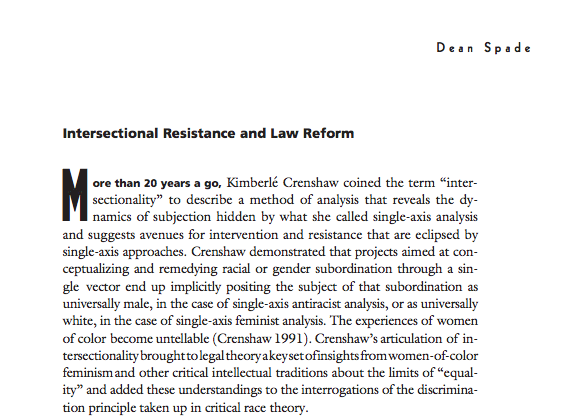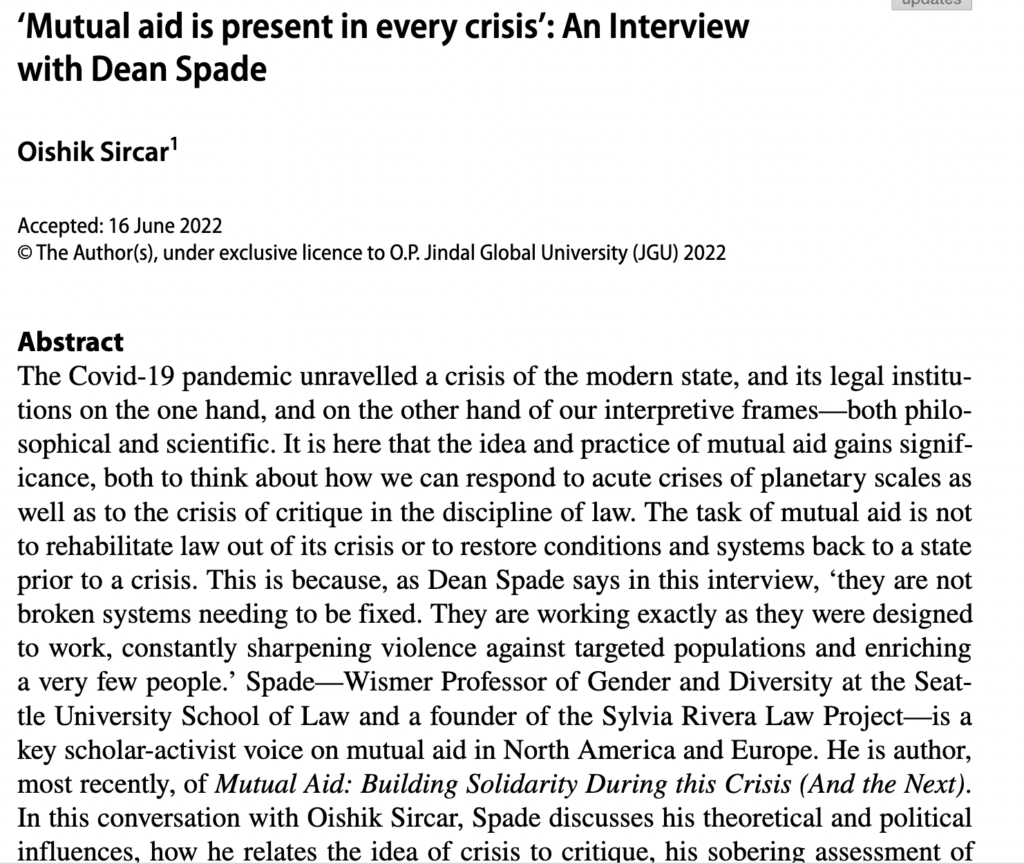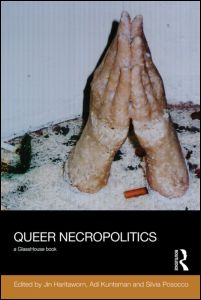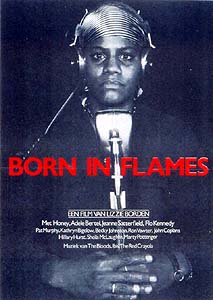I wrote an article called “Intersectional Resistance and Law Reform” in Signs, published in 2013. You can read the full text online here, or download it here.

Abstract:
Critical race theory generally and intersectionality theory in particular have provided scholars and activists with clear accounts of how civil rights reforms centered in the antidiscrimination principle have failed to sufficiently change conditions for those facing the most violent manifestations of settler colonialism, heteropatriarchy, white supremacy, ableism, and xenophobia. These interventions have exposed how the discrimination principle’s reliance on individual harm, intentionality, and universalized categories of identity has made it ineffective at eradicating these forms of harm and violence and has obscured the actual operations of systems of meaning and control that produce maldistribution and targeted violence. This essay pushes this line of thinking an additional step to focus on the racialized-gendered distribution schemes that operate at the population level through programs that declare themselves race and gender neutral but are in fact founded on the production and maintenance of race and gender categories as vectors for distributing life chances. In the context of intensifying criminal and immigration enforcement and wealth disparity, it is essential to turn our attention to what Michel Foucault called “state racism”—the operation of population-level programs that target some for increased security and life chances while marking others for insecurity and premature death. This essay looks at how social movements resisting intersectional state violence are formulating demands (like the abolition of prisons, borders, and poverty) that exceed the narrow confines of the discrimination principle and take administrative systems as adversaries in ways that pull the nation-state form itself into crisis.
Full Text



